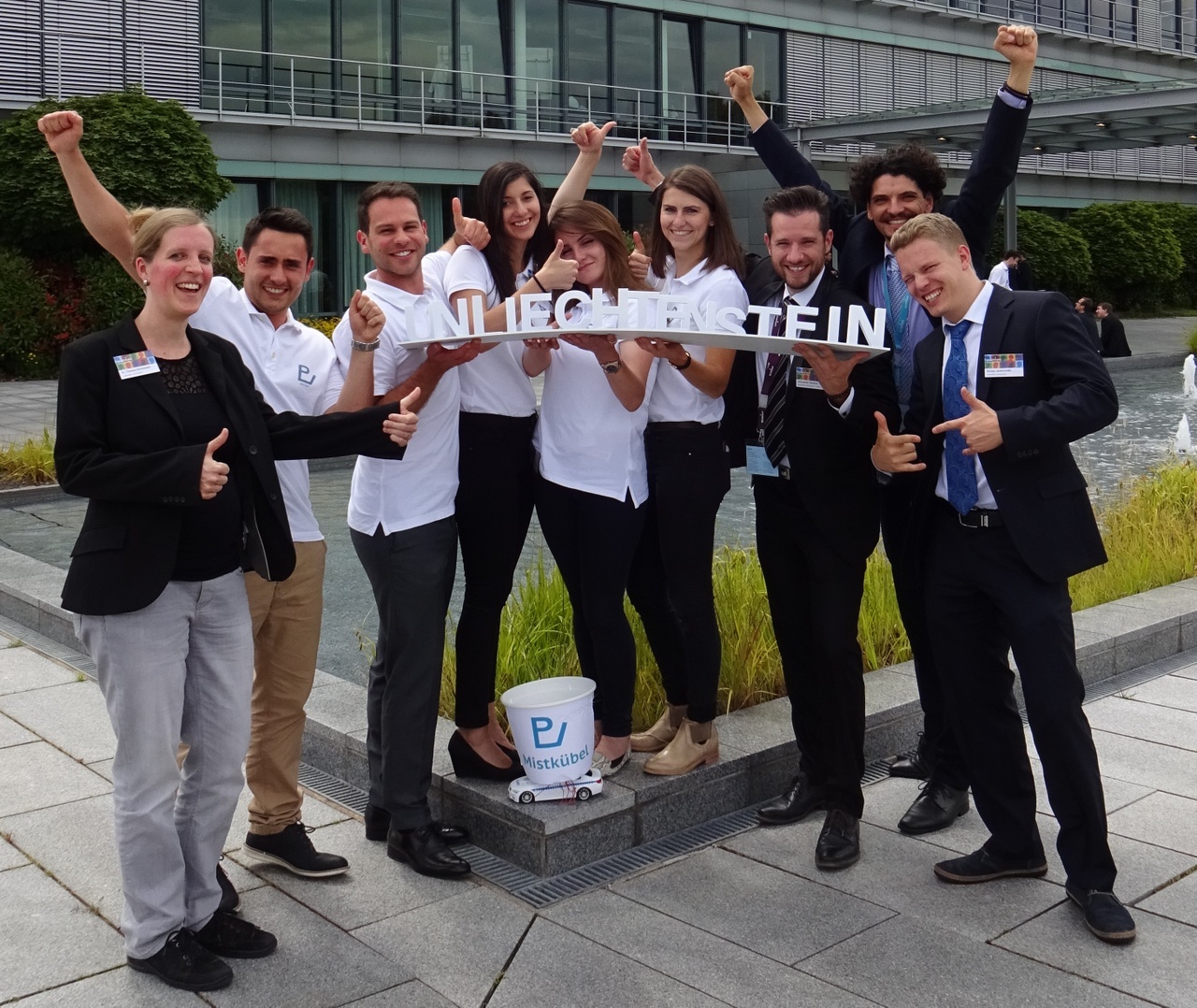After the team “Promena”, existing of master students of the study programme Information Systems at the University of Liechtenstein, had already decided the Swiss final for themselves, Lora Delieva, Johannes Heinzelmann, Christian Holder, Michael Kamm, Ruanda Qamili and Sina Reubelt successfully prevailed at this year’s Accenture Campus Innovation Challenge 2016 with their project “Smart Waste Management” against 5 other teams from Germany and Austria.
The Accenture Campus Innovation Challenge is a cross-university and transnational case study competition of the well-known consulting company, where top students from Germany, Austria and Switzerland compete against each other. This year the topic of the challenge was “Industrial-Internet-of-Things (IIoT)”. The Industrial Internet of Things is a network of physical objects, systems, platforms and applications, which contain embedded technology to communicate with each other and exchange information amongst themselves, with the environment and humans. Currently, the Industrial Internet of Things is one of the most important drivers of innovation for the economy and industry.
The Institute of Information Systems at the University of Liechtenstein specifically promotes in its study programmes the ability to develop innovative, IT-based solutions to increase efficiency of companies and to create new business areas by the participation in case study competitions. Within the seminar “Innovation Lab” the winning team compiled an innovative solution to optimize waste disposal and could convince the expert jury with their project “Smart Waste Management”. Thereby, the waste level can easily be transferred to central waste sites using sensors in waste bins to optimize the routes of waste disposal, which could lead to enormous time and cost savings. Dr. Theresa Schmiedel, Assistant Professor at the Hilti Chair of Business Process Management leads the seminar and was impressed by the performance of the students: “The team not only stands out by their solution, which could already be implemented tomorrow, but also by their extraordinary commitment and unique team spirit.”

